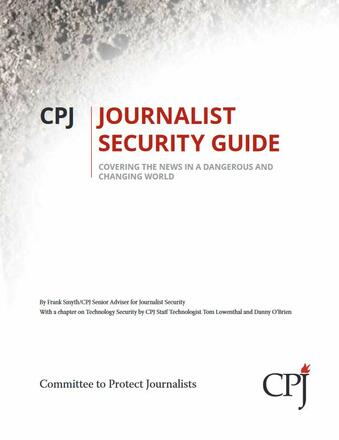
With the cutbacks of newsrooms, more freelancers are reporting on their own risk. They often lack the back up by a strong network that provides contacts, financial and legal support. Therefore, it is crucial to check on the role the reporter is to play, the risks the assignment includes, and the legal and security support the media organization is able to provide if a problem occurs.
If for journalists backed by a newsroom network or reporting as a freelancer - the manual gives advice for the proper preparation for reporting in potentially dangerous situations or on critical issues and includes the following sections:
1. Basic Preparedness
2. Assessing and Responding to Risk
3. Technology Security
4. Armed Conflict
5. Organized Crime and Corruption
6. Civil Matters and Disturbances
7. Natural Disasters
9. Sustained Risks
10. Stress Reactions
The appendix contains checklists for security training, insurance providers, journalism resources and manuals, journalism organizations, other resources and a pre-assignment security assessment.
Tags: Safety of journalists Worldwide Ethics of journalism Investigative journalismThe content of this article can be used according to the terms of Creative Commons: Attribution-NonCommercial 4.0 International (CC BY-NC 4.0) . To do so use the the wording "this article was originally published on the Resource Centre on Media Freedom in Europe" including a direct active link to the original article page.

